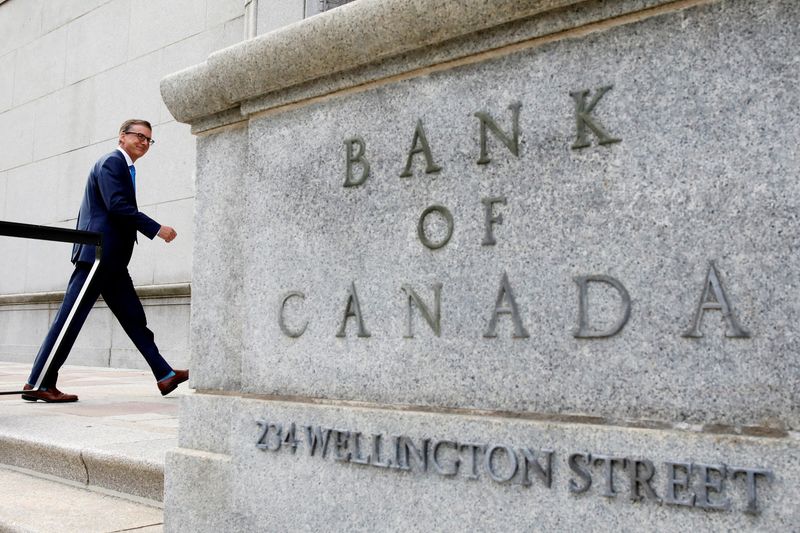By Steve Scherer and Julie Gordon
OTTAWA (Reuters) - Canada's plan to spend an extra C$6.1 billion ($4.5 billion) in the next five months may undermine the central bank's effort to curb inflation, despite Finance Minister Chrystia Freeland's vow not to make the job of monetary policy harder, analysts said.
Although the spending package unveiled by Freeland in a fiscal update on Thursday is relatively modest in scope and builds on existing federal stimulus measures and payouts to consumers promised by Canada's 10 provinces, it has raised concerns about stimulating an already-hot economy.
Scrutiny intensified on Friday after the government reported a whopping jobs gain in October, raising the prospect that the Bank of Canada would have to pull the trigger on a sixth straight outsized interest rate hike at its meeting next month.
"I would have rather seen them totally toeing the line on spending, if not shrink it somewhat, so that maybe we would have less by way of cumulative rate hikes going forward," said Derek Holt, vice president of capital markets economics at Scotiabank.
Instead, "the onus is still squarely, fully, 100% on the Bank of Canada to tighten," he said.
Money markets are now leaning toward the BoC raising its policy rate by half a percentage point on Dec. 7, a move that would come on top of the 350 basis points worth of tightening it has already undertaken since March. The BoC's policy rate is seen peaking at 4.5% in early 2023.
If interest rates rise more than previously forecast and stay elevated for longer, Freeland's growth outlook may also prove rosier than warranted, jeopardizing a tax revenue windfall that the Liberal government is banking on to fund spending and cut the deficit to 1.3%-1.8% of GDP this fiscal year, from the previous year's 3.6%.
Indeed, economists said the government's baseline expectations for 0.7% growth next year were optimistic, and the reality was likely to be closer to the 0.9% contraction forecast in its downside scenario.
"I think they're going to struggle to see any improvement in the coming fiscal year," said Doug Porter, chief economist at BMO Capital Markets, adding that the fiscal measures were working at a slight crosscurrent to monetary policy.
Scotiabank estimates the combined stimulus measures by the provinces over the coming quarters will top C$16 billion, while the federal government has announced C$22.9 billion in new spending for this year and next since its April budget.
DELICATE LINE
While Canadian inflation has eased to 6.9% from a recent peak of 8.1%, it is still well above the BoC's 2% target, and underlying pressures are proving sticky.
"I am confident that we have struck the right approach," Freeland told reporters on Thursday, as she tried to walk a delicate line between offering targeted help to those suffering from high inflation and the need for fiscal restraint.
The fact that Prime Minister Justin Trudeau's government depends on the left-leaning New Democrats to pass legislation like the fiscal update helps explain the new spending, said Jimmy Jean, chief economist at Desjardins.

The government "didn't come up with anything that would irritate global investors the same way the UK did," Jean said, adding that it "should have kept more powder dry for when there is a recession. But at the same time, it would have been tougher politically speaking."
($1 = 1.3499 Canadian dollars)